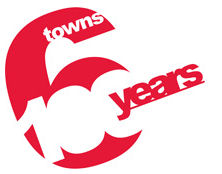31st March 1910 saw the federation of the
six towns to form the County Borough of Stoke-on-Trent
|
Stoke-on-Trent Local
History |
|
|
|
|
| Federation of the six towns 31st March 1910 saw the federation of the six towns to form the County Borough of Stoke-on-Trent |
![]()
![]()
![]()
next: Parliamentary Elections Pt 1
previous: Ted Smith
contents: Index page for
Federation


Federation article by local
historian - Fred Hughes
People who made the Potteries - Stoke-on-Trent MP's
|
It may surprise people to learn that of the 25 MPs who have served Stoke-on-Trent since 1910 only ten came from the city – the last being George Stevenson who retired in 2005. The longest-serving was Ellis Smith – 31 years from 1935 to 1966. The one with least service was Myles Harper Parker, a Hanley trade union MP, for one year before his health failed. Only four have been women, three representing Labour. Most Stoke-on-Trent MPs have been bound in grassroots socialism, first through the waning Liberals and then Labour. In fact the only time Labour failed to hold all three seats concurrently was between 1931 and 1935 when the Conservatives had Ida Copeland in Stoke and Harold Hales in Hanley, with William Allen, a National Liberal MP, in Burslem.
The century began tragically for Enoch Edwards, a Labour MP representing Hanley and Burslem. He was president of the National Miners’ Federation and led the disastrous coal strike of 1912 – a local man who believed passionately in working class representation and trade union doctrine. And it was popularly thought that the bitter strike hastened his death that same year. A by-election was won by a vacillating Liberal candidate Robert Outhwaite, a sheep farmer from Tasmania. He held extreme views on land reform and was opposed to aristocratic privilege and landed monopoly, an aspect that the Stoke-on-Trent unions found appealing. During the Great War he took an anti-war stance and advocated joining the Russians in universal proletarian revolution in 1917. But the Stoke-on-Trent comrades preferred patriotism over pacifism.
In 1918 a new Representation Act gave all adult men and some women the right to vote. It introduced boundary changes which gave Stoke-on-Trent an extra MP with the three constituencies we are familiar with today. Ward broke from Labour and was replaced by Stoke-on-Trent’s first woman MP, Lady Cynthia Mosley of Kedleshall Hall; also Labour and wife of the future fascist Leader Oswald Mosley. Meanwhile the Hanley constituency changed MPs with indecisive frequency during a time of Labour’s in-favour/out-of-favour emergence. This was a period resulting in self-doubting governance with the ever-present hazard of hung-parliaments. During this shaky time Hanley elected a number of trade union MPs – James Seddon, Myles Parker, Sam Clowes and Arthur Hollins each succeeding the other in the space of a decade.
The Labour MP in Burslem between 1922 and 1945 was Scotsman Andrew MacLaren. He lost his seat more than once and was a troublesome party member breaking ranks, as Outhwaite did before him, to promote land reform and the radicalisation of human rights.
Harriet Slater, Labour’s only female chief whip, became Stoke North’s MP between 1953 and 1966 followed by schoolmaster John Forrester who met a similar fate to MacLaren when he was deselected in favour of Joan Walley in 1986. Robert Cant took over Barnett Stross’s Stoke Central seat in 1966 handing over to Mark Fisher in 1983. While Jack Ashley made it all-change in 1966 succeeding Ellis Smith. Ashley was followed by George Stevenson and him by Robert Flello. It seems to me that MPs and councillors have been cluttered over 100 years by obsequious party politics and parochial negativity. How different might it have been if the federation of 1910 had gone further than the boundaries of Tunstall and Longton? Nimbyism and narrow-minded politics still rule – OK! |
![]()
![]()
![]()
next: Parliamentary Elections Pt 1
previous: Ted Smith
contents: Index page for
Federation